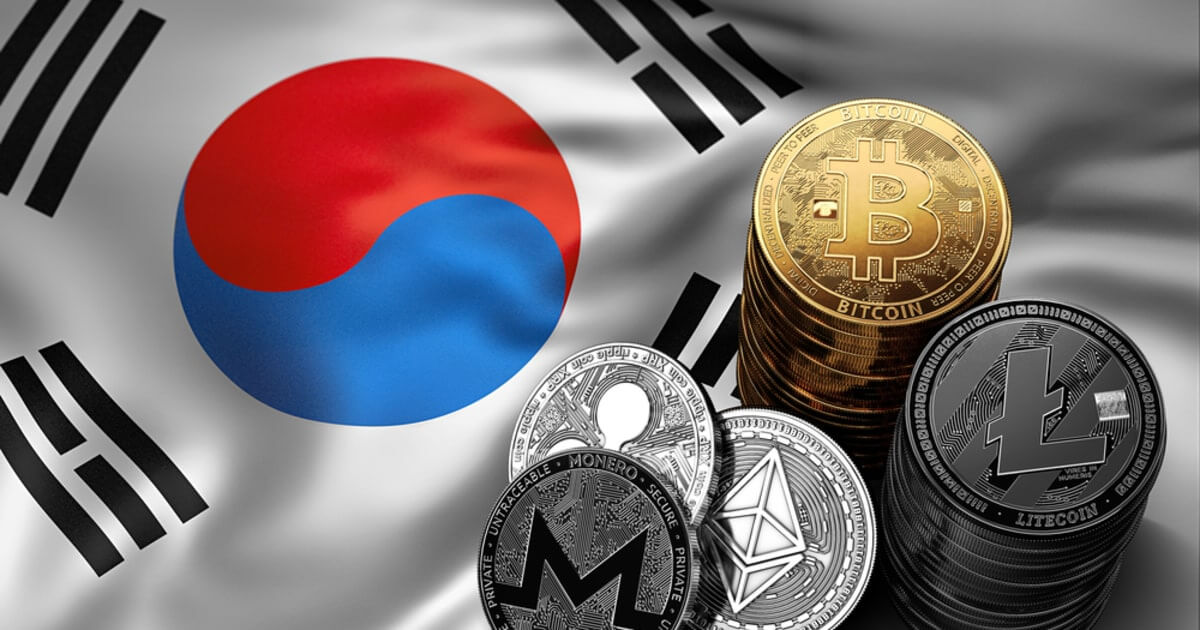South Korea Intensifies Blockchain in Banking but Rules Out Digital Fiat Currency
Nicholas Otieno Nov 04, 2019 18:10
Wide application of blockchain technology is expected to affect people’s lives, business, education, governance, and other sectors. That is the reason, many countries explore and even deploy the huge potential of this technology. But the latest trend of the technology seems to have taken a new twist in South Korea. Now let’s find out why South Korea continues adopting blockchain in banking but rejects rolling out digital fiat currency.

Innovation has become decentralized globally, with several countries making significant progress while others have struggled with infrastructure and macroeconomic issues. Several factors like state-of-the-art infrastructure, corporate investment, favorable government’s incentives, and policies, and others affect a country’s perception.
According to MERIC's new survey, the US continues to dominate in the blockchain innovation landscape by 34%. China becomes the second (26%) as it challenges Europe. The United Kingdom becomes the best in Europe while in Asia, Japan, and South Korea are significant participants in blockchain adoption.
South Korea has ruled out issuing its own digital tokens. The reason for this move is that digital fiats are still far off from what the country wants to be. Meanwhile, the country’s private sector continues intensifying the pace of blockchain in banking.
Now, let’s look at new blockchain paradigms taking shape in South Korea.
South Korea isn't issuing a digital currency
South Korea's central bank – the Bank of Korea (BOK) said that it wouldn’t be issuing a digital fiat currency in the near future. The BOK said that there is “almost no need” for digital fiat in the country.
The head of the central bank’s financial service department – Hong Kyung-Sik – mentioned views talked about by other international regulatory bodies that identify that central bank digital currencies (CBDCs) would be most effective in developing countries, and therefore have no place in advanced economies.
He also emphasized that South Korea has an advanced payment and settlement infrastructure like credit card providers and financial settlement networks. Therefore, the country has a broad variety of payment methods available.
Commercial banks embrace blockchain technology
Meanwhile, the South Korea private sector seems to be in too much of a hurry to adopting blockchain-powered solutions in the banking industry.
KT is one of the country’s biggest telecoms. The telecom company has created a smart contract-powered solution and blockchain technology for automated currency exchange tellers, in partnership with a leading commercial bank, IBK. Bellsoft – automated currency exchange machine operator- also is participating in the project.
The parties aim to launch devices next year, and want to install them in shopping malls, hotels, and subway stations across the nation. The machines will provide “preference exchange rates” and will offer 24-hour service. Bellsoft and KT hope that other banks will join the initiative.
The reason for the increased adoption of blockchain among firms is because South Korea softened its stance on cryptocurrency in 2019. Regulators thus adopt more a welcoming approach, which opens the door to potential collaborations between blockchain startups and traditional finance.
Many tech firms like Samsung corporation have adopted blockchain technology. Many big financial institutions have also launched their own cryptocurrencies initiatives.
Banks in the region are creating large blockchain portfolios, with leading banking institutions are making considerable investments in recent months. They are keen to use blockchain technology to speed up transactions and payments and cut costs.
Takeaway
South Korea’s regulatory authorities encourage the adoption of blockchain technology in various sectors. Several firms are already taking advantage of this new technology to drive efficiency and minimize costs. For example, blockchain in banking is on the boom.
But it seems that the regulators have a clear snapshot of how the country should adopt and implement blockchain.
Image via Shutterstock
Image source: Shutterstock
.jpg)